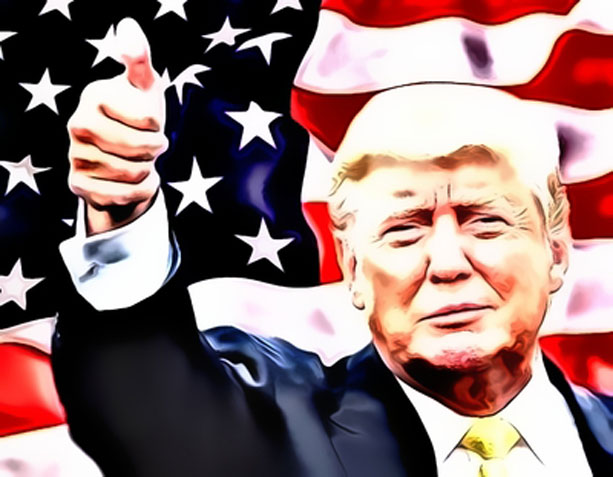
When he was in office, President Barack Obama spent a lot of time demeaning police, contending they were "systemically" racist, another way of saying, hey, watch out, black folks, they are after you. He thereby fed a narrative making police less effective and contributing to a significant homicide rise in our largest cities. President Donald Trump is helping to fix that. Killings are down.
It was horrendous, this particular crime rise, but many social scientists passed it off as nothing much, just an uptick following decades of homicides decreasing, not nearly as high as once upon a time and likely to go down. So we dismiss the 2008 recession because it was not as bad as the Great Depression and followed by a recovery?
Our 30 largest cities saw an average increase in homicides of 13.2 percent in 2015, and of 14 percent in 2016. That is a lot of blood in the street, a lot of dead men, women and children.
This was mostly black people killing other black people. There must be an explanation, and one of the most convincing was suggested by Heather Mac Donald, a fellow at the Manhattan Institute think tank. She observed that violent crime increased markedly following the 2014 Ferguson, Mo., shooting in which a policeman killed a young black man who could otherwise have gotten his gun and killed the cop.
But false stories were out there, leading to fierce anger in black communities that intensified as still more police shootings of blacks occurred.
Obviously, there are bad, racist cops who do horrible things, but most police are good men and women putting their own lives at risk to serve the rest of us. As we learn from Mac Donald, cops actually shoot more whites than blacks, even though blacks commit a greater number of the nation's violent crimes. It is the case, too, that shootings almost always occur when an officer is being threatened by firearms or in some other situation in which an officer is far more likely to be shot by a suspect than vice versa.
Still, the demonstrations, riots and rhetoric exhibited a fist-waving hostility toward police. The hostility made it harder for police to work in black neighborhoods, and it was lent legitimacy by Obama when he would talk, for instance, about the innocent "being found guilty of walking while black." He would also have his Justice Department intervene incessantly with local police forces.
Beleaguered cops became less proactive, as in not checking out a gathered group on a corner where drugs were often sold. The practice was pretty much eliminated in Baltimore, and, as Mac Donald tells us, drug dealers spread their wares like never before. Another proactive practice had been stop and frisk. The National Academy of Sciences, which earlier could find no evidence for gun control measures working, found this particular one did. Mac Donald believes it was important in helping to save large numbers of lives.
In short, less proactive police meant more crime, but then came Trump, someone who supported police, who spoke out in their favor. I myself saw how this could work when I went to see a Trump campaign speech in Denver.
Police were there to safeguard the audience and speakers from shouting, teeth-baring demonstrators, and they kept saying thank you and other nice things to the ticket holders. One black cop even jokingly volunteered to give me a sandwich for lunch.
Not in all cities, but in many of the largest ones, homicides and crime generally have gone down in 2017. While some of the cities themselves have taken important steps, don't leave Trump out of the equation, especially considering his support for going after gangsters engaged in human trafficking, for grants for more police and for supplying police with needed equipment.
The biggest beneficiaries are the communities that have been ravaged by homicide.
Jay Ambrose(TNS)
Comment by clicking here.
Jay Ambrose, formerly Washington director of editorial policy for Scripps Howard newspapers and the editor of dailies in El Paso, Texas, and Denver, is a columnist living in Colorado.


 Contact The Editor
Contact The Editor
 Articles By This Author
Articles By This Author